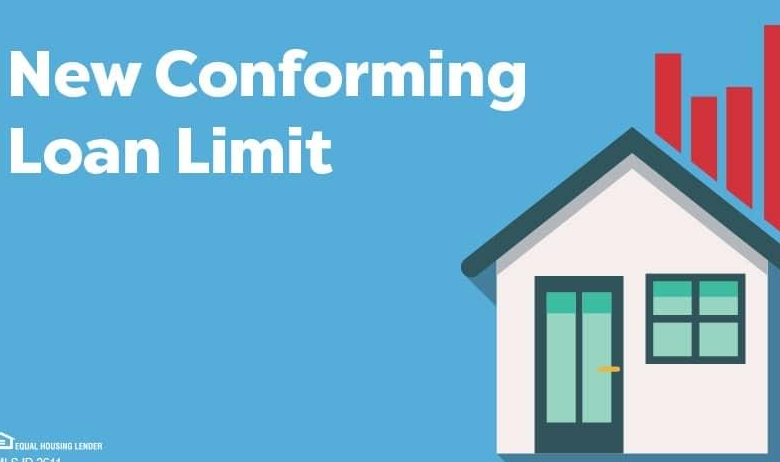what is a conforming loan

A conforming loan is a mortgage loan that meets the guidelines of government-sponsored enterprises (GSEs) such as Fannie Mae and Freddie Mac. These guidelines include the loan amount, borrower’s credit score, and the property type. Conforming loans are also sometimes referred to as conventional loans.
1) What is a conforming loan?
A conforming loan is a type of mortgage that meets the standards set by government-sponsored entities Fannie Mae and Freddie Mac. These loans benefit borrowers by offering lower mortgage rates and easier qualification standards. In order to qualify as a conforming loan, your mortgage must meet certain guidelines set by Fannie Mae and Freddie Mac.
Loan Limits
The first guideline has to do with the loan amount. Fannie Mae and Freddie Mac only purchase loans that fall under their maximum loan limits. These limits vary by county, but they’re generally $484,350 or less for most of the United States. Loans that exceed this limit are known as jumbo loans and typically come with a higher interest rate.
Down Payment Requirements
The second guideline has to do with your down payment. Conventional loans require a minimum down payment of 3%, but you can qualify for a conforming loan with as little as 5% down. If you put down less than 20%, you’ll be required to pay private mortgage insurance (PMI).
Credit Score Requirements
The third guideline has to do with your credit score. To qualify for a conforming loan, you’ll need a credit score of at least 620. However, you may be able to qualify with a lower score if you have a high income and low debt-to-income ratio.
Debt-to-Income Ratio Requirements
The fourth guideline has to do with your debt-to-income ratio. This is the ratio of your monthly debt obligations to your monthly income. To qualify for a conforming loan, you’ll need a debt-to-income ratio of 50% or less. However, if you have a high credit score, you may be able to qualify with a higher debt-to-income ratio.
Property Requirements
The fifth and final guideline has to do with the property you’re buying. To qualify for a conforming loan, the property must be a single-family home, a condo, a co-op, or a manufactured home. It must also be a primary residence, and it can’t be an investment property.
2) The benefits of a conforming loan
A conforming loan is a mortgage that is equal to or less than the dollar amount limit set by the Federal Housing Finance Agency (FHFA). For a single-family home, the loan limit is currently $453,100 in most parts of the country, but it can reach as high as $679,650 in high-cost areas. Conforming loans are typically easier to qualify for than non-conforming loans, because they have more flexible credit and debt-to-income requirements.
There are several benefits of taking out a conforming loan:
1. You may have an easier time qualifying. As mentioned, conforming loans have more flexible credit and debt-to-income requirements than non-conforming loans. This means that you may have an easier time qualifying for a conforming loan, even if you have bad credit or a high debt-to-income ratio.
2. You’ll likely get a lower interest rate. Interest rates for conforming loans are typically lower than rates for non-conforming loans. This is because conforming loans are less risky for lenders, and the rates are set based on market conditions.
3. You may have more loan options. Some lenders only offer conforming loans, so if you’re looking for a non-conforming loan, you may have to shop around. However, if you’re open to a conforming loan, you’ll likely have more loan options to choose from.
4. Your loan may be easier to sell. If you need to sell your home before you’ve paid off your mortgage, it may be easier to find a buyer if you have a conforming loan. This is because buyers know that they’ll be able to get financing for a conforming loan, but they may not be able to get financing for a non-conforming loan.
5. You’ll know exactly what you’re getting. With a conforming loan, you’ll know exactly what you’re getting. The terms of the loan will be set by the lender, and you’ll know exactly how much you’ll need to pay each month. With a non-conforming loan, the terms may be more flexible, but you may also
3) The drawbacks of a conforming loan
A conforming loan is a loan that meets the standards of loan guidelines established by government-sponsored enterprises (GSEs) Fannie Mae and Freddie Mac. The most well-known guideline is the size of the loan, which as of 2018 was generally limited to $453,100 for a one-unit property in the contiguous United States. Other guidelines include borrower’s loan-to-value ratio (i.e. the size of the down payment), debt-to-income ratio, credit score and history, documentation requirements, etc.
Conforming loans offer some advantages over non-conforming loans, including:
– Lower interest rates. Because conforming loans are considered to be less risky, they typically come with lower interest rates than non-conforming loans.
– Greater availability. Conforming loans are easier to Qualify for because they have more flexible guidelines.
– Easier to compare rates and terms. With so many different types of loans available, it can be difficult to compare and find the best deal. Conforming loans make it easier to compare offers from different lenders.
However, conforming loans also have some drawbacks:
– Limited loan amounts. One of the main disadvantages of conforming loans is that they are only available up to a certain loan limit. In most areas of the country, the limit for a one-unit property is $453,100. This means that if you are looking to purchase a more expensive home, you will need to seek out a non-conforming loan.
– More strict guidelines. While conforming loans do have more flexible guidelines than non-conforming loans, they are still more strict than government-backed loans. This means that it may be more difficult to Qualify for a conforming loan, especially if you have less-than-perfect credit.
– Private mortgage insurance (PMI). If you are putting less than 20% down on a home, you will likely be required to pay private mortgage insurance (PMI). This is an additional cost that can add up over time.
If you are looking to purchase a home, it is
4) Who is eligible for a conforming loan?
A conforming loan is a loan that meets the guidelines set by government-sponsored entities Fannie Mae and Freddie Mac. These entities purchase mortgages from lenders, so that lenders can free up money to make more loans. The guidelines set by Fannie Mae and Freddie Mac are designed to make sure that the loans they purchase are affordable and don’t pose too much risk.
In order for a loan to be eligible for purchase by Fannie Mae or Freddie Mac, it must meet the following criteria:
-The loan must be for a single-family home, a duplex, a triplex, or a four-plex.
-The loan must be for a primary residence, a second home, or an investment property.
-The loan must have a fixed interest rate.
-The loan must have a term of 30 years or less.
-The loan must be a conventional loan, which means that it can’t be insured or guaranteed by the government.
-The loan can’t be a jumbo loan, which is a loan that exceeds the conforming loan limit.
The conforming loan limit is the maximum loan amount that Fannie Mae or Freddie Mac will purchase. The limit varies by county, but it is generally $484,350 or less. Loans that exceed the conforming loan limit are considered jumbo loans.
Borrowers who take out a conforming loan can generally expect to have a lower interest rate than borrowers who take out a jumbo loan. This is because the risk is higher with a jumbo loan, since the loan amount is higher than what Fannie Mae or Freddie Mac is willing to back.
5) How to apply for a conforming loan
A conforming loan is a loan that meets the standards of loan guidelines set by government-sponsored enterprises Fannie Mae and Freddie Mac. Conforming loans are available in a variety of terms, including fixed-rate and adjustable-rate mortgages.
The main criteria for a conforming loan are:
1. The loan must be for a primary residence.
2. The loan must be for a single-family home, a two-unit home, a three-unit home, or a four-unit home.
3. The loan amount must be for $453,100 or less.
4. The loan must have a fixed interest rate.
5. The loan must have a term of 30 years or less.
To apply for a conforming loan, you will need to submit a loan application to a lender. The lender will then pull your credit report and review your financial situation. If you meet the lender’s criteria, they will offer you a loan.
